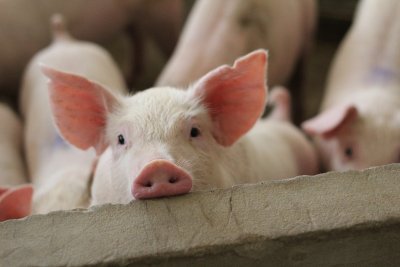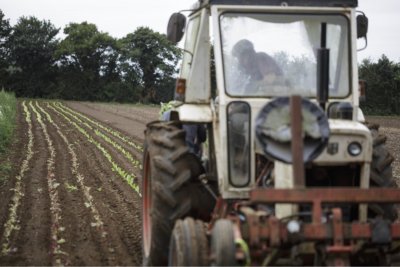A report released today by the Alliance to Save Our Antibiotics reveals that over 7,000 deaths in the UK could be directly caused by antibiotic resistance. The Alliance has criticised the Government for inaction on antibiotic use in farming and has issued recommendations to policymakers.

The How to End Misuse of Antibiotics in Farming report published by the Alliance to Save Our Antibiotics shows that the Government has failed to deliver on its commitment to end prophylactic antibiotic use in farming, which was originally made by then Defra Minister George Eustice MP in October 2018. The government has produced proposals for new legislation on the use of antibiotics on farms. However, they will be weaker than the European regulations introduced in January 2022 despite repeated pledges that it would align with the EU on this issue.
The UK legislation, which is largely based on the 2022 EU rules, includes some positive measures, including a prohibition on using antibiotics routinely or “to compensate for poor hygiene, inadequate animal husbandry or poor farm management”. All prophylactic antibiotic use will be restricted to “exceptional circumstances where the risk of an infection or of an infectious disease is very high and where the consequences of not prescribing the product are likely to be severe”.
Cóilín Nunan of the Alliance to Save Our Antibiotics said:
“Some proposed measures are welcome and long overdue. But the government has deliberately weakened the legislation, in comparison to the EU’s, which will allow some poorly run farms to keep on feeding large groups of animals antibiotics, even when no disease is present.
“The government insists that farmers should be allowed to feed groups of animals prophylactic antibiotics because some may still need to make improvements to their management practices to get disease problems under control. At the same time it is saying that farmers cannot use antibiotics to compensate for poor farm management.
“The government’s position is inconsistent and raises serious questions about how seriously the legislation will be implemented in practice”.
Many farms have made progress on reducing antibiotic use meaning that UK farm antibiotic use has been cut by 59% over the past decade, but use per pig is still about twice as high as in France and Denmark, nearly three times as high as in the Netherlands, and over four times as high as in Sweden.
Recommendations to reduce antibiotic use
The report has suggested targets of a 40% reduction in farm antibiotic use between 2022 and 2030, and to reduce group treatments to less than 30% of UK farm antibiotic use by 2030. The Alliance’s report argues that many of the practices of modern intensive farming are putting animals under excessive stress, causing poor health and leading to unacceptable antibiotic use.
In order to reduce reliance on antibiotics, the Alliance has recommended restrictions on farm practices, such as tail docking of piglets, or the use of farrowing crates, which are used to cage sows from a few days before they give birth until their piglets are weaned. It also asks that the minimum weaning age of piglets is increased to 35 days, which is associated with lower antibiotic use.
The Alliance calls on the Government to ensure that farms use appropriate breeds, so that farm animals are not genetically selected for excessively high productivity as this is often linked with increased health problems. Furthermore, it recommends that animals have access to outdoor areas, as ‘zero grazing’ has been found to increase risk of disease. It is estimated that between 16% and 30% of British dairy farms keep some or all of their cows indoors all year round. Zero-grazing is associated with higher levels of mastitis, lameness and reproductive disorders, which are all major causes of antibiotic use.
Other recommendations include, increasing fibre in animal feed, reducing stock density, increasing hygiene and providing enrichment for animals are all key to reducing reliance on antibiotics.
Sustain’s Sustainable Farming Coordinator, Will White, has said:
‘The continued profligate use of antibiotics within industrial animal farming epitomises the short-sighted and negligent mindset of the industrial meat sector. The promise of a more forward-thinking farming policy after Brexit is being undermined by the newly proposed legislation, which is in fact now weaker than current EU policy. Continuing to rely on antibiotics perpetuates a factory farming model that would otherwise be unsustainable without their excessive use.’
Read the full How to End the Misuse of Antibioitcs in Farming report here and the Policy Asks to Reduce Farm Antibiotic Misuse here.
Published Monday 26 February 2024
Sustain: Sustain The alliance for better food and farming advocates food and agriculture policies and practices that enhance the health and welfare of people and animals, improve the working and living environment, enrich society and culture and promote equity.





